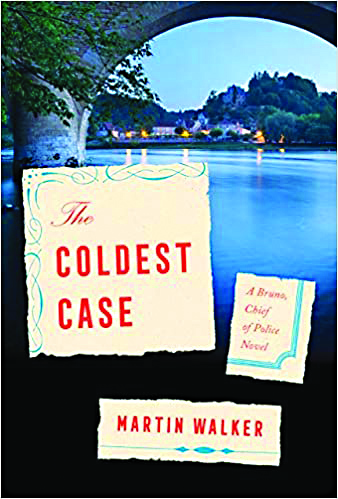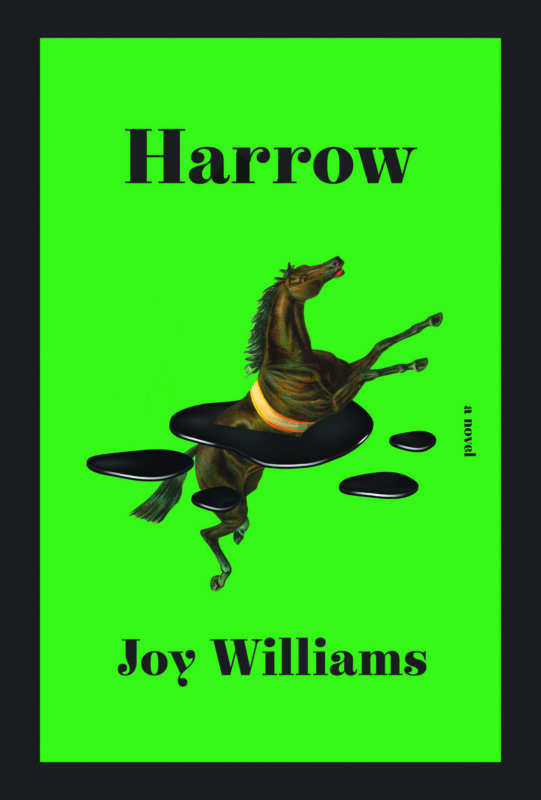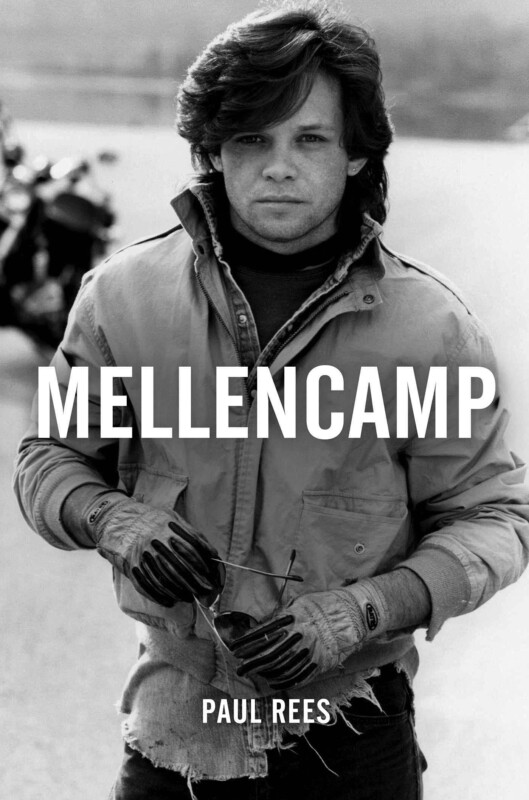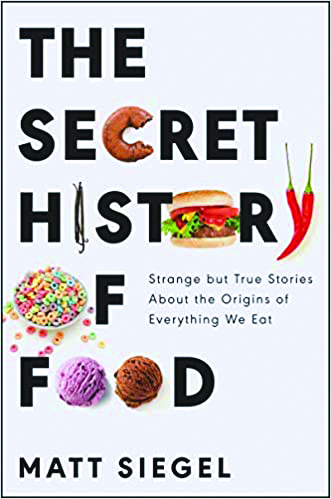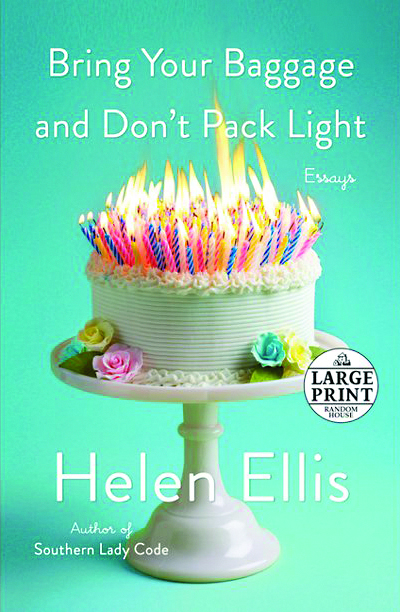The Coldest Case: A Bruno, Chief of Police Novel, by Martin Walker (Knopf, 316 pages)
I do love cozy mysteries. I love the wit, the lack of gratuitous violence, and often the underlying area of expertise that each series includes — like mysteries centered around the experiences of a White House chef or an embroidery shop owner or someone who owns a bakery. Cozies follow a predictable pattern; the “detective” is often reluctantly drawn into a murder that they must then solve. They’re usually written with good dialogue and a protagonist who frequently questions his or her ability to succeed. Of course, all good cozies also teach you about the protagonist’s hobby or business.
Cozies are what I turn to when I need a break from reading the heavier political books that are out there. I think of them as a palate cleanser, sort of like watching an episode of Murder, She Wrote between episodes of Dateline.
I wasn’t familiar with the Bruno, Chief of Police series, written by Martin Walker, and when I picked up book No. 16 (!), The Coldest Case, without having read any of the other ones, I had some doubts. Would I be missing too much backstory with the characters?
Turns out I didn’t need to worry. The Coldest Case is a compelling murder mystery that is solved by a modern-day Renaissance man, Police Chief Bruno, who seems to know a little about a lot of things. In this story Bruno has been haunted by a 30-year-old cold case in which a body was found in the woods near St. Denis, France.
After visiting a museum exhibition, Bruno gets the idea to “recreate facial structure” over the victim’s skull in the hopes that it will lead to identification. To do this he calls in an expert who can sculpt the face. While the facial reconstruction is being done, newly obtained DNA evidence links the murder victim to a French special forces soldier who died in action.
Now the unsolved murder mystery also becomes a tangled web of family secrets. The murdered man turns out to be the dead soldier’s father. The mother is also dead and had kept her secret from both her husband and her family. It turns out solving the cold case is going to need a great deal of diplomacy.
In doing the investigation Bruno moves from the Bergerac vineyards to old Communist Party strongholds in Paris and their links to the Soviet bloc. It’s an exciting and intelligent read filled with historical facts that move at a steady pace.
There is a small weak spot in this book. Bruno’s relationship with his long-term girlfriend Isabelle sets off some alarms (I couldn’t really see what he sees in her) but as this is the 16th book I’m sure there is history that I am unaware of. Their relationship wasn’t a deal-breaker for the book; it just didn’t make a whole lot of sense to me. Bruno is so accomplished and Isabelle seems so, well, childish. Still, the overall storytelling makes up for this small bumpy patch.
And as in all good cozies you learn things along the way, like about the breeding of basset hounds, the care of riding horses, gardening, and of course, this taking place in the Perigord region of southern France, the glorious food that is prepared and eaten. Not only do you get the pleasure of solving a mystery but you also get to learn about French culture and topics that you probably never knew you’d be interested in.
“‘Good for you, and your priorities are the right ones,’ the mayor said, nodding his approval and trying to put her at ease. ‘But we can’t let you come to the Perigord without enjoying the sights and the food, so you can understand why we’re all so devoted to this region.’”
That right there seems to be the additional reason for this book. The first reason is, of course, the murder mystery and the telling of a fine story, but the second and equally important reason is to share the beauty and culture of a little slice of French heaven on earth.
This is one of those books, like Under the Tuscan Sun, that will make you put the region in which it takes place on your bucket list to visit. Martin does an excellent job of describing the scenery, meals, culture, and people of Perigord. Reading this book is like taking a tiny vacation in the middle of your workweek.
Although this was my first Bruno, Chief of Police novel, it will not be my last. Enjoyable, entertaining and educational — a winning combination. A
— Wendy E. N. Thomas
Book Notes
Call up Kate Bowler’s new book, No Cure For Being Human, and Amazon informs that it’s the No. 1 bestseller in the category of colorectal cancer, which seems a dubious honor that the author may not want.
Amazon categories are like that. You might think you’re writing in a genre of inspiration or faith, but the company likes that label “bestseller” and will scuttle around on the algorithm floor until it finds a category that fits.
At this stage of life, I have zero interest in colorectal cancer and hope that continues. But I have but a lot of interest in Bowler, who was a relatively obscure professor at Duke Divinity School until she got sick and started writing about it. Her illness revealed a master wordsmith, and her first book about her experience with cancer, Everything Happens for a Reason: And Other Lies I’ve Loved(Random House, 208 pages), was warm and witty, yet a ferociously blunt take on getting a devastating diagnosis as a young mother.
No Cure for Being Human (Random House, 224 pages) continues in that vein, and its opening pages suggest that Bower’s sense of humor has gotten even sharper throughout her years of treatment.
For an entirely different kind of suffering, though still viewed with humor, check out How to Suffer Outside (Mountaineers Books, 224 pages), Diana Helmuth’s original take on the well-worn topic of hiking and backpacking. “Someday, at some point in your life (if it hasn’t happened already), you’re going to see something misshapen,” she writes, continuing, “This is the best time to put everything in a backpack and leave.” Which is pretty much what Cheryl Strayed did in Wild, but Helmuth puts a more practical take on the subject, writing more in the style of Jen Sincero’s “badass” series. If you need inspiration to join the leaf-peeping hordes, this breezy paperback might help.
Finally, every now and then you come across a book that withered on the vine but should have been a bestseller simply because of its title. To wit: Naked Came the Leaf Peeper, a 2011 novel by Brian Lee Knopp and Linda Marie Barrett (Renaissance Bookfarm, 212 pages). It’s a collaborative novel, meaning 12 different authors contributed to it. A book by committee: What could go wrong? But long past-due kudos for the title.
— Jennifer Graham
Book Events
Author events
• JORDAN MORRIS Comedy writer and podcaster discusses his podcast, Bubble. Virtual event presented by The Bookery in Manchester via Zoom. Fri., Oct. 8, 2 p.m. Visit facebook.com/bookerymht.
• MELANIE MOYER AND CHARLIE J. ESKEW Virtual author conversation presented by Toadstool Bookshops of Nashua, Peterborough and Keene. Sat., Oct. 9, 11 a.m. Visit toadbooks.com.
• DIANNE TOLLIVER Author presents Life Everyone Has a Story. Barnes & Noble (1741 S. Willow St., Manchester, barnesandnoble.com). Sat., Oct. 9, 10 a.m.
• ARCHER MAYOR Author presents Marked Man. Virtual event by Toadstool Bookshops of Nashua, Peterborough and Keene. Tues., Oct. 12, 6 p.m. Visit toadbooks.com.
• HOWARD MANSFIELD Author presents Chasing Eden: A Book of Seekers. Thurs., Oct. 14, 6:30 p.m. Gibson’s Bookstore (45 S. Main St., Concord). Visit gibsonsbookstore.com.
• R.A. SALVATORE AND ERIKA LEWIS Authors present The Color of Dragons. Tues., Oct. 19, 6:30 p.m. Gibson’s Bookstore (45 S. Main St., Concord). Tickets cost $5. Space is limited, and registration is required. Visit gibsonsbookstore.com.
Poetry
• DOWN CELLAR POETRY SALON Poetry event series presented by the Poetry Society of New Hampshire. Monthly. First Sunday. Visit poetrysocietynh.wordpress.com.
• SLAM FREE OR DIE Series of open mic nights for poets and spoken-word artists. Stark Tavern, 500 N. Commercial St., Manchester. Weekly. Thursday, doors open and sign-ups beginning at 7 p.m., open mic at 8 p.m. The series also features several poetry slams every month. Events are open to all ages. Cover charge of $3 to $5 at the door, which can be paid with cash or by Venmo. Visit facebook.com/slamfreeordie, e-mail slamfreeordie@gmail.com or call 858-3286.
Book Clubs
• BOOKERY Online. Monthly. Third Thursday, 6 p.m. Bookstore based in Manchester. Visit bookerymht.com or call 836-6600.
• GIBSON’S BOOKSTORE Online, via Zoom. Monthly. First Monday, 5:30 p.m. Bookstore based in Concord. Visit gibsonsbookstore.com/gibsons-book-club-2020-2021 or call 224-0562.
• TO SHARE BREWING CO. 720 Union St., Manchester. Monthly. Second Thursday, 6 p.m. RSVP required. Visit tosharebrewing.com or call 836-6947.
• GOFFSTOWN PUBLIC LIBRARY 2 High St., Goffstown. Monthly. Third Wednesday, 1:30 p.m. Call 497-2102, email elizabethw@goffstownlibrary.com or visit goffstownlibrary.com
• BELKNAP MILL Online. Monthly. Last Wednesday, 6 p.m. Based in Laconia. Email bookclub@belknapmill.org.
• NASHUA PUBLIC LIBRARY Online. Monthly. Second Friday, 3 p.m. Call 589-4611, email information@nashualibrary.org or visit nashualibrary.org.

